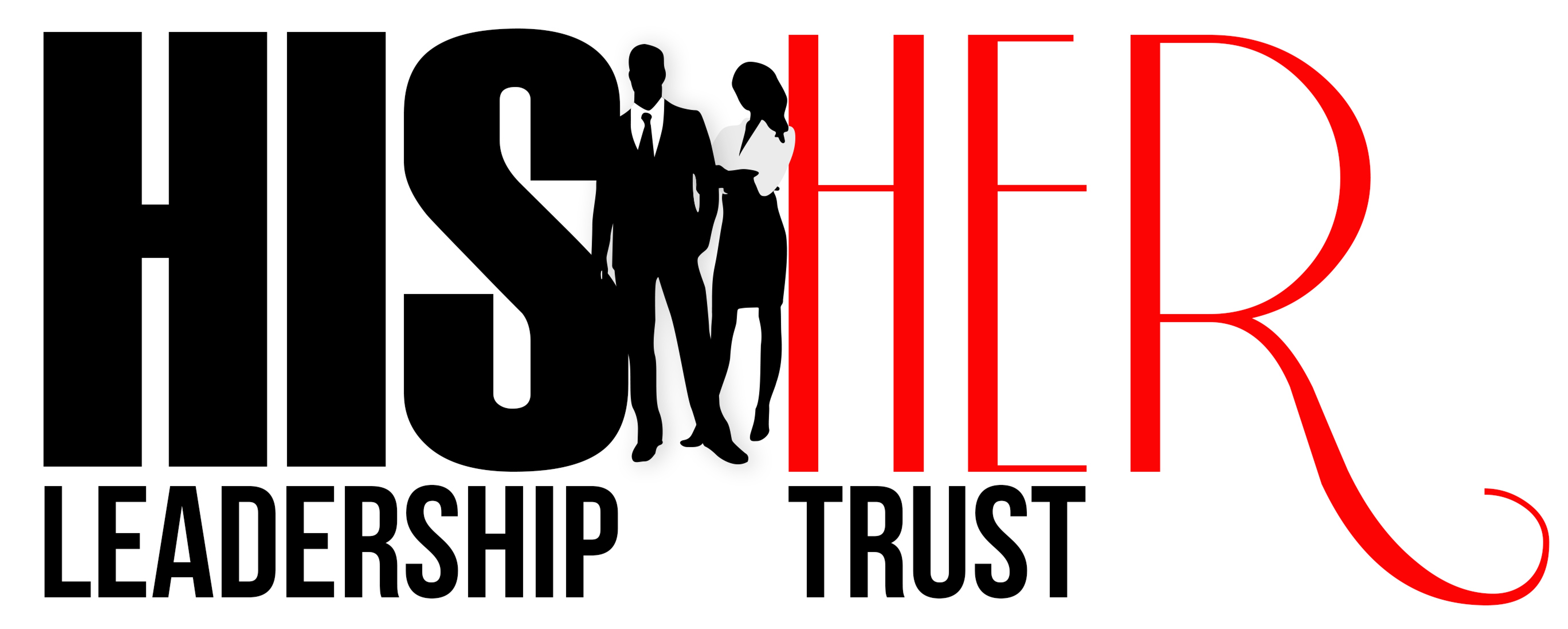2. Leadership is Not Person-Specific (Leadership is Not Authority)
Just as a leader is not character specific, leadership is not person-specific either. The existence of an organization and the leadership therein, does not dictate who the leader is. Anyone in an organizational relationship can be the leader, not just the one in authority. For leadership is not authority.
Stogdill (1950) defines authority as the permissions given to someone to make decisions, carry out responsibilities, and enlist the cooperation of others. But just because you have the authority to provide leadership doesn’t mean you are the one who’s actually the leader…or even knows how to lead.
This misunderstanding between authority and leadership is what sometimes stumps men in their relationships. I’ve seen countless numbers of husbands in a power struggle with their wives over who will get their way. To gain the upper hand, they pull out their authority card. “I’m the man of the house!”, they cry. And yes sir – you are, in fact, the man of the house. And if you’re a Christian, by default, that means you are assigned the position of authority – to be the leader of your marriage. But just because you have the authority to lead doesn’t mean that you are actually the one who’s leading. Neither does it mean you know how to lead. It just means you are the one with the responsibility to lead. But leadership is not person-specific. You could possess the authority to lead, but not be the leader.
Let me prove it.
In the unwritten rules of pick-up basketball, it’s universally known that, “I got next!” means that I have the authority to pick up any 4 players I choose to run on my squad. Everybody knows it. My authority is unquestioned and unchallenged. Even if somebody comes to the court after me, they will first check to see who has the authority to play the next game by asking, “Who’s got next?”
“I do”, I say confidently.
“You got your 5?”
“Yeah.”
Then he’ll say, “I got next after you.” Done deal. No discussion…no issue.
The four people I picked for my team all have different positions. I usually play the point guard. The remaining four I assign the positions of shooting guard, small and power forwards, and center. We are officially an organization. And whenever there’s an organization, leadership must be present. And I’m the leader.
The game begins. Everybody is playing their role. They’re performing their responsibilities as assigned. But then, there usually arises someone on my team that’s got game (it’s usually not me). He has a command of the court and a hot hand. He’s the one telling people on my team what to do, who to pick up, running the fast breaks, stealing the ball, and double-teaming opponents.
Eventually, everyone on my team is playing up to his energy level, following his instructions, and passing him the ball as the go-to guy. And when we win, the elation is felt throughout my team. But our success is primarily due to his efforts. Now you tell me, who has the authority and who provides leadership – to my team?
The same is true in relationships. The man is assigned the authority to lead, but in some cases…many cases…and in some cities most cases…the woman is the one who’s providing leadership. That’s because leadership is not person-specific. Whoever is running things…is providing the leadership. (curveball alert – in some families…it’s the children – but that’s for another article)
So you tell me…who’s the leader in your relationship? And don’t lie!


 Follow
Follow
I appreciate your response to my last message, but I have a question for you because your article (and a few others) is a little contradictory and appears to be, well…double talk. Do you believe that husbands have authority over their wives? If so, what does this authority look like? When couples are at an impasse, who gets the finay say? You can believe, all you want, that men are the “authority” but if your wife does not submit to you then there’s no authority, is there?
Great. Lets talk about authority. The reason why I wrote this article is to distinguish between authority and leadership. Sometimes people use them interchangeably. That’s find…conversationally. But when dealing with the intricacies of the husband/wife relationship, I believe it’s important to know the difference so the house can function properly.
Scripture is clear…that Christ is the head of man, and man is the head of woman (if you are a Christian, then this should not be foreign to you). Assuming you are, this order/structure establishes authority – in that it gives permissions to Christ to do certain things; and it gives permissions to man to do certain things.
What this authority looks like is that man is the responsible one. This is patterned after the authority God gave Adam. I don’t have time to go into all the specifics, but in Gen. 2, God gave Adam the instructions about what he was to do with the the land (work it) and from what tree not to eat. Then he gave Adam Eve so she could help him. We both know what happened next. But the answer to your question is ‘the responsible one. Now…how that plays out in each individual relationship varies.
So according to scripture, the man has been assigned this authority. But as the article above state, you can have authority, but no leadership, evidenced by a wife not submitting. But just because a wife does not submit to his authority as a wife, doesn’t me he has not been given that authority. Case in point, hypothetically speaking, just because your kids don’t always submit to your authority, doesn’t me that you don’t have it. You are still the responsible one…regardless whether they follow you or not. That is why I’m trying to teach men how to lead in such a way that their women want to follow them…because most women don’t want to follow their husbands.
For example, if my kids disobey me, I can discipline them by taking away privileges, spanking them, or restricting certain activities. Why? Because I have authority over them. They KNOW I am the authority. In an organization, a supervisor or manager can take disciplinary action against an employee who doesn’t follow the certain rules. Employees KNOW who’s the authority. What I’m saying is people with real authority can implement it and expect coorperation and correct those who are non-compliant. How does this fit in with the command for husbands to love their wives?
God loves us…but he still checks us when we are non-compliant. Pro. 3:19 and Heb 12:6 both say the God disciplines those he loves. So the notion that correcting your wife as a husband is inconsistent with loving her. In fact, its very consistent.
But you bring up an interesting point about implementing “real authority”…as would a parent, supervisor, or manager. They are not implementing authority – per se. What they are using POWER. If you recall from a previous response, power is the control over the access to and distribution of resources. What you call implementing real authority is in fact, granting access to or distribution of TRIPAR (time, resources information, punishment, affection, and rewards). The use of power is all parents, supervisors, and managers do. That is why it’s important (from a relational standpoint vs. a conversational standpoint) to understand the difference between authority, which is just the permissions granted to someone; and power, which is the control over TRIPAR.
The scary part for those who are not the leader is when someone uses their authority and power to manipulate and control people. That’s why these terms are some shunned when talking about marriage and relationships. My intent is to give people understanding so they can lead better…and follow better.
“So the notion that correcting you wife as a husband in inconsistent with loving her. In fact, its very consistent.”
I know you have your own definitions of what certain words mean to justify what your positions and you pride yourself in believing that you are enlightened and all but please spare me with all the semantics. It’s overkill.
Anyhow, I agree with you, but a wife should also correct her husband. That’s not what I was talking about though. I am talking about consequences. That’s were the power comes in that a husband does not have over a wife or vise versa. And for the record, no one is a leader or a follower in my marriage. As Christians, sir, we do not get off on titles in my house. Thanks.
And I agree with you. A wife should correct her husband too. But I absolutely disagree with you about whether a husband or wife can use consequences to control his wife, and vice versa. Here’s how: they use the power of punishment (the ‘P” in TRIPAR). If a spouse doesn’t get what he/she wants, she can withhold sex, he can withhold love and affection, she can give the silent treatment. They also can use their spouses needs against them. For example, if you like a clean house, your husband can intentionally leave it messy in retaliation for not getting what he wants. But he will agree to resume cleaning after himself if he gets what he wants. Money is a great power weapon to levy consequences too. He can lie about not having enough to prevent you from making a purchase; or he can use it as leverage to get something from you in return.
I can go on…but the point is that in relationships where one or both individuals grew up where transactional relationships were common (you buy me things, and I’ll give you sex…and the like), they become skilled at using whatever power resources they have at their disposal to bargain and barter for what they want out of the relationship. It’s not a model to follow, by no means; but they do exist.